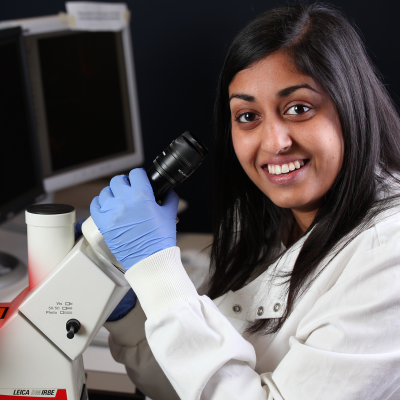The Biosciences and Chemistry undergraduate and masters lab-based project period at SHU is a busy time for technical staff. They run for 8 weeks through June and July. The specialist skills of the team really come into play during these sessions as the students require in depth, face to face support in a broad range of techniques and in the use of advanced laboratory equipment. Students use this time to gather the results they require to write a project report forming the final assessment of their degree.
Prior to the start of project session, there is an immense amount of preparation that technical staff do to ensure that session runs smoothly. On average there are 50 – 60 students that generate approximately 500+ individual chemical or reagent requests. Technical staff work directly with academic staff to manage the ordering of all these chemicals and consumables. They aliquot 1000s of individual tubes of reagents from kits and make up some solutions ready for the students to use.
Technical staff plan and deliver many specialist training courses that they give to students before projects so that they have the basic knowledge of the techniques they need throughout the session. They develop and implement standard operating procedures, risk assessments and detailed information about the techniques and the equipment.
For the students doing cell culture in their projects, the technicians grow up the mammalian or bacterial cell lines that have been requested and continue subculturing for a period after projects have begun to provide a backup of cells.
As a placement student, some tasks I had when preparing for projects included retrieval of chemicals & materials from our archive store, gathering kit & spare equipment, and making equipment loans and booking sheets. My responsibilities included housekeeping of labs, cell culture maintenance, and restocking of general chemicals and plasticware in labs. When possible, I gave support in any general queries or issues the students had during their projects.
Collectively, the technical team work to ensure students gain practical experience that is beneficial to their learning and career prospects. From the assistant technicians taking care of the glass washing and autoclaving systems to specialist technicians providing face to face project support, to the technical managers planning and organising the process. The different roles of the technical team all contribute to the delivery of high-quality project sessions at SHU.
As I am approaching the end of my placement, I feel that I have really benefited from being immersed in some of the jobs that technicians are responsible for daily. It has enabled me to improve my organisation and time management skills as well as gaining valuable skills such as discipline through having a daily routine and responsibilities.
Going forward into the final year of my degree, my experience within the technical team will be advantageous to me as I have had the opportunity to gain practical laboratory experience that I would have otherwise not had. I have been directly involved in the delivery of projects and have a good understanding of the operations during projects. My placement within the technical team has been an eye-opening experience and has given me, as a student, a new appreciation for the technical team and everything they contribute to the department.


